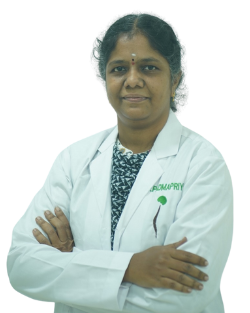Coma Arousal Program / Cognitive Disturbance
Physiologist

Why our Neuro Surgeons are Best?
Our Neuro Surgeons excel with over 20 years expertise and vast knowledge in neurosurgery. Renowned for precise diagnoses and innovative treatments, they ensure optimal patient care and outcomes, making them leaders in their field.
Introduction
Key Components of CAP
1. Multimodal Stimulation
- Auditory Stimulation : Playing familiar sounds, music, and voices of loved ones to stimulate auditory pathways and evoke memory responses.
- Visual Stimulation : Using pictures, videos, and light therapy to engage visual processing centers.
- Tactile Stimulation : Incorporating touch-based therapies such as gentle massage and textured objects to stimulate sensory feedback.
- Olfactory Stimulation : Exposure to familiar smells to trigger olfactory responses and memory recall.
- Gustatory Stimulation : Using taste-related stimuli to engage taste buds and associated memories.
2. Cognitive Rehabilitation Techniques
- Memory Exercises : Structured activities designed to help recall personal history, facts, and events.
- Attention Training : Exercises to improve focus and concentration, often involving gradual increases in task complexity.
- Problem-Solving Tasks : Engaging the patient in activities that require logical thinking and decision-making.
- Language and Communication Practice : Speech therapy sessions aimed at improving verbal skills and understanding.
3. Physical Rehabilitation
- Physical Therapy : Exercises to maintain and improve physical conditioning and mobility, crucial for overall brain health and recovery.
- Occupational Therapy : Activities that mimic daily living tasks to promote functional independence and cognitive engagement.
4. Environmental Enrichment
- Structured Routine : Creating a consistent daily schedule to provide stability and predictability, aiding cognitive recovery.
- Social Interaction : Encouraging visits and interactions with family and friends to stimulate emotional and cognitive responses.
- Sensory-Rich Environment : Ensuring the patient’s surroundings are engaging and stimulating, with varied sensory inputs.
Goals of CAP
- Restore Cognitive Functions : Improve thinking skills, memory, and other cognitive abilities that were impaired due to brain injury.
- Enhance Quality of Life : Enable the patient to engage more meaningfully with their environment and loved ones.
- Promote Independence : Gradually increase the patient’s ability to perform daily activities independently.
- Facilitate Emotional Recovery : Help patients regain emotional stability and well-being through social interactions and therapeutic support.
Implementation
The CAP is tailored to each patient’s specific needs, based on their current level of cognitive function and overall health. The program is dynamic and adjusts according to the patient’s progress and responsiveness to various stimuli.
Multidisciplinary Approach : The program is administered by a team of specialists, including neurologists, neuropsychologists, speech and language therapists, occupational therapists, and physical therapists. This collaborative approach ensures a holistic and comprehensive rehabilitation process.
The Coma Arousal Program (CAP) at Neuro Foundation represents a state-of-the-art approach to cognitive rehabilitation for brain-injured patients. By utilizing a combination of multimodal stimulation and targeted therapeutic activities, CAP aims to restore cognitive functions, improve memory, and enhance the overall quality of life for patients recovering from severe brain injuries.
